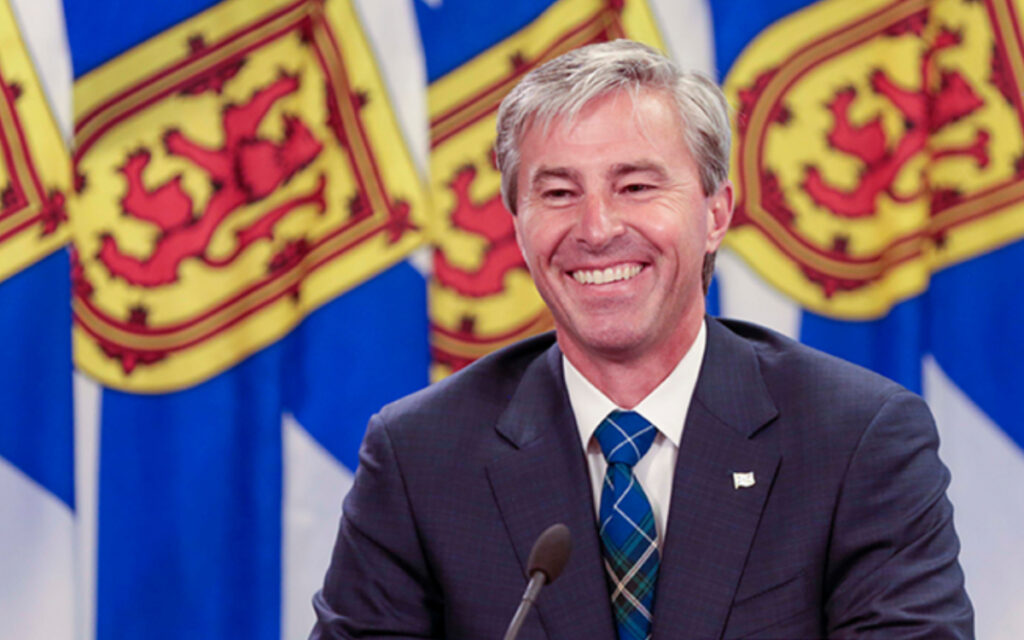
This single move will save Nova Scotia taxpayers a huge chunk of change – one-year savings will amount to $160 million by 2028. Photo Credit: Communications Nova Scotia.
Premier Tim Houston made one very important –and positive – move in Budget 2024: he’s finally putting an end to bracket creep.
This single move will save taxpayers a huge chunk of change – one-year savings will amount to $160 million by 2028.
Many taxpayers might be unfamiliar with the concept of bracket creep.
Bracket creep happens when governments don’t move tax brackets and inflation automatically pushes taxpayers into higher tax brackets even if they can’t afford to buy more.
To understand just how punishing bracket creep has been to Nova Scotia taxpayers over the past 23 years, consider the following example.
A taxpayer who earned $35,000 in 2000 was sending 6.4 per cent of their paycheque to the provincial government through income taxes.
But if that very same taxpayer only received a cost-of-living pay raise each year between 2000 and 2023, their provincial income tax bill would have increased to 9.6 per cent of their income.
That’s a massive tax hike by stealth. It’s why politicians love profiting off inflation through bracket creep: cost-of-living pay raises increasingly end up in the pockets of politicians rather than in the pockets of taxpayers.
Getting rid of bracket creep in this year’s budget was a huge win for taxpayers, especially because Houston repeatedly said he wouldn’t do it.
Just a few short months ago, Houston defiantly claimed he would not address the issue of bracket creep until he “fixed” the province’s health-care system. Houston’s excuse was flimsy at best and Nova Scotia’s opposition Liberals repeatedly took Houston to task for profiting off inflation.
Thankfully, Houston finally buckled to taxpayer pressure. On budget day, the government announced that bracket creep in Nova Scotia will finally end come the 2025 tax year.
Now that Nova Scotia is on board, every province, as well as the federal government, has commitments in place to review and adjust income tax systems to ensure taxpayers are no longer punished for keeping up with living costs.
Just five years ago, bracket creep was a reality for taxpayers at every income level in Alberta, Saskatchewan, Nova Scotia and P.E.I. Alberta and Saskatchewan got rid of bracket creep a few years ago, while P.E.I. announced plans to do so several months ago. By next year, all four of those provinces will have stopped deliberately profiting off inflation at taxpayers’ expense.
Still, the bracket creep fight is not over.
Ontario continues to refuse to index its top two income tax brackets to inflation and P.E.I. only has a policy of reviewing its tax brackets every year. Taxpayer advocates should not rest until bracket creep is fully stamped out of Canada’s tax system.
Back in Nova Scotia, Houston can’t just stop at eliminating bracket creep.
Because Nova Scotia didn’t adjust its income tax brackets for decades, the tax burden facing every taxpayer is significantly greater than it was when the system was last changed in 2000.
The provincial income tax burden for many has increased by as much as 50 per cent over that period. That can’t go unaddressed.
Houston must cut taxes. That begins with reversing a budget full of fiscal recklessness.
The Houston government’s budget laid out plans to ramp up spending, run a deficit nearing $500 million and see debt interest payments hit $1 billion by 2026.
Houston desperately needs to put the brakes on spending. Nova Scotia taxpayers deserve tax relief after years of tax hikes by stealth. Houston needs to restrain the government’s budget so that taxpayers can keep more money at the kitchen table.
To create an environment ripe for tax relief, Houston must get spending under control and slay the deficit. After that, it’s time to deliver much-needed relief to Nova Scotia taxpayers.

Jay Goldberg is the Ontario Director at the Canadian Taxpayers Federation. He previously served as a policy fellow at the Munk School of Public Policy and Global Affairs. Jay holds a Ph.D. in Political Science from the University of Toronto.




















